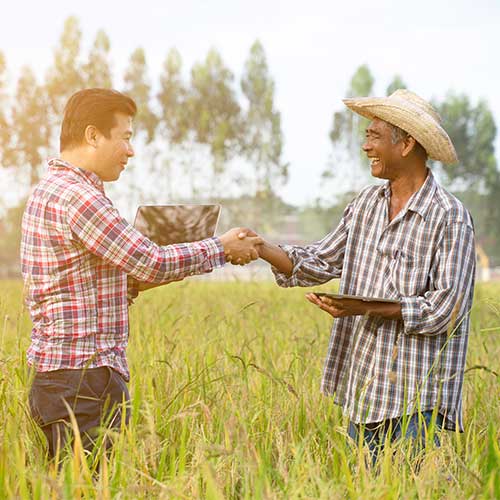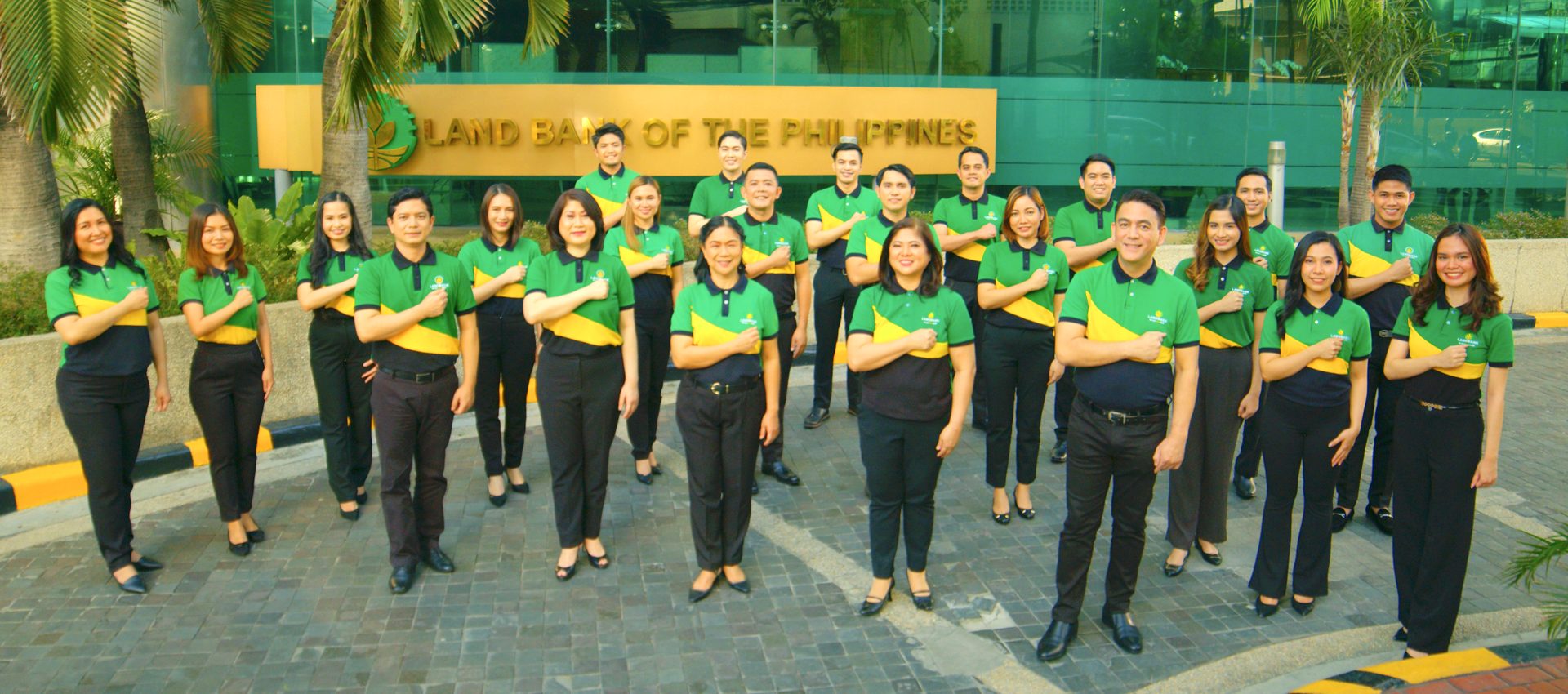The Land Bank of the Philippines (Landbank) is intensifying its support to the agriculture sector through a variety of initiatives, including direct lending programs, capacity building programs, and partnerships with other government agencies and stakeholders.
In 2023, Landbank’s total loan portfolio to the agriculture and rural development sector reached P713.8 billion, way above the 25% requirement for local banks to allocate financing for agriculture, fisheries and rural development (AFRD) under Republic Act No. 8435.
Landbank has also implemented a major directional shift in its lending programs to individual small farmers and fishers. In partnership with the Department of Agriculture (DA), Landbank has aggressively pursued three legislated lending programs in recent years:

The Enhanced Rice Competitiveness Act (ERCA)-Rice Competitiveness Enhancement Fund (RCEF) Loan Program provides credit assistance to small rice farmers and their cooperatives to boost their productivity and income.
The SURE Loan Program provides affordable loan financing to farmers, fishers, and other rural borrowers for their production, marketing, and livelihood activities.
The Special Window and Interim Support to Nurture Hog Enterprises (SWINE Lending Program) provides loans to commercial hog raisers to help them repopulate and increase local hog production.
In addition to its direct lending programs, Landbank also provides capacity building programs to farmers and fishers to help them improve their business management skills and productivity. Landbank also partners with other government agencies and stakeholders to implement programs and projects that support the development of the agriculture sector.
For example, Landbank is a partner of the DA in the implementation of the Philippine Rural Development Project (PRDP), which is a multi-billion peso project that aims to improve the income and well-being of rural communities in the Philippines.
Landbank is also a partner of the Department of Agrarian Reform (DAR) in the implementation of the Comprehensive Agrarian Reform Program (CARP), which is a government program that aims to distribute land ownership to landless farmers.

Landbank’s support to the agriculture sector is essential to the country’s economic development. The agriculture sector employs about 25% of the country’s workforce and contributes about 10% to the country’s GDP.
By intensifying its support to the agriculture sector, Landbank is helping to create more jobs, increase farmers’ incomes, and boost the country’s economy.
Here are some of the specific benefits of Landbank’s support to the agriculture sector:
- Increased productivity and income for farmers and fishers
- More jobs created in the rural sector
- Reduced poverty and hunger
- Improved food security
- Sustainable economic development
This year, The Land Bank of the Philippines (Landbank) is a major provider of loans to rice farmers in the Philippines. Landbank’s loans help rice farmers to purchase farm inputs, such as seeds, fertilizers, and pesticides; invest in new technologies; and expand their operations.
In 2023, Landbank released P2.2 billion in loans to rice farmers through its Expanded Rice Credit Assistance under the Rice Competitiveness Enhancement Fund (ERCA-RCEF) Program. The ERCA-RCEF Program is a government program that aims to boost the productivity and income of rice farmers.
Under the ERCA-RCEF Program, rice farmers can borrow up to 90% of their total project cost at an interest rate of 2% per year. The loan can be used to purchase farm inputs, invest in new technologies, and expand their operations.
Landbank’s loans to rice farmers have helped to boost their productivity and income. For example, Noemi C. Negrillo, a 68-year-old rice farmer from Quirino province, was able to purchase farm inputs and sustain her rice production through a loan under the ERCA-RCEF Program.
“Malaki ang naitulong ng ERCA-RCEF sa aming pagsasaka dahil mababa ang interes nito kumpara sa ibang pautang. Sana ay magtuloy-tuloy pa ang Programang ito para marami pang magsasakang kagaya ko ang matulungan,” Negrillo said.

Landbank’s loans to rice farmers also help to improve the country’s food security. By increasing the productivity and income of rice farmers, Landbank is helping to ensure that there is a sufficient supply of rice to meet the needs of the growing population.
In addition to its direct lending programs, Landbank also partners with other government agencies and stakeholders to implement programs and projects that support the development of the rice sector. For example, Landbank is a partner of the Department of Agriculture (DA) in the implementation of the Rice Tariffication Law, which aims to make rice more affordable for consumers and to boost the competitiveness of the Philippine rice industry.
Landbank’s commitment to supporting the rice sector is essential to the country’s economic development. The rice sector is one of the most important sectors in the Philippine economy, employing millions of people and contributing significantly to GDP.
By supporting the rice sector, Landbank is helping to create more jobs, increase farmers’ incomes, and boost the country’s economy evident in its wide range of programs and initiatives. By working closely with farmers, fishers, and other stakeholders, Landbank is helping to build a more prosperous and sustainable future for the Philippine agriculture sector.






